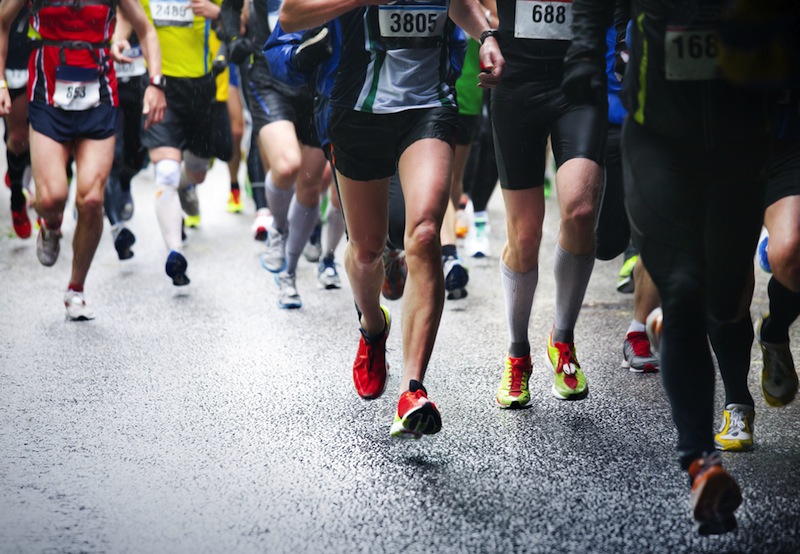A Bit of Walking Takes Strain Out of Running a Marathon

Think that slowing down and walking a little during a marathon will ruin your time? Maybe not: A new study finds that among amateur runners, those who walked for part of a marathon had similar times compared with those who ran the whole way.
In the study, 42 recreational runners from Germany, who typically ran between 6 and 12 miles (10 to 20 kilometers) per week, volunteered to run a marathon. The participants underwent three months of training to prepare for the marathon (which is 26.2 miles, or 42.2 km) in Kassel, Germany, in May 2013.
The participants were divided into two groups: a "running-only" group, who ran the full marathon, and a "run/walk" group, who stopped and walked for 1 minute every 1.5 miles.
The participants in the run/walk group finished the marathon in about the same time as those in the running-only group — just over 4 hours. (Although the group that ran the whole time did finish the marathon about 7 minutes faster, on average, than the people in the run/walk group, the researchers found that this time difference was not statistically meaningful.) [5 Most Amazing Marathon Feats]
Both groups also had about the same average heart rate (between 154 and 158 beats per minute) and the same maximum heart rate (about 174 beats per minute) during the race.
But people in the run/walk group reported less muscle pain and less fatigue than those in the running group immediately after finishing the marathon: More than 40 percent of people in the running group reported extreme exhaustion, compared with less than 5 percent of those in the run/walk group, the researchers found.
"Lower ratings of exhaustion and muscle pain after the marathon, despite similar finish times, suggest that the run/walk strategy reduces the load on the musculoskeletal system. Therefore, this pacing strategy can highly be recommended to non-elite runners, as similar finish times can be achieved with less discomfort," the researchers write in an upcoming issue of the Journal of Science and Medicine in Sport.
Sign up for the Live Science daily newsletter now
Get the world’s most fascinating discoveries delivered straight to your inbox.
Both groups also experienced similar increases in biomarkers of heart stress, which suggests that the run/walk strategy did not reduce strain on the cardiovascular system, the researchers said. For the people in both groups, levels of these biomarkers returned to normal four days after the marathon.
"The increase in cardiac biomarkers is a reversible, physiological response to strenuous exercise, indicating temporary stress," on the heart and skeletal muscle cells, the researchers said.
Follow Rachael Rettner @RachaelRettner. Follow Live Science @livescience, Facebook & Google+. Original article on Live Science.

Rachael is a Live Science contributor, and was a former channel editor and senior writer for Live Science between 2010 and 2022. She has a master's degree in journalism from New York University's Science, Health and Environmental Reporting Program. She also holds a B.S. in molecular biology and an M.S. in biology from the University of California, San Diego. Her work has appeared in Scienceline, The Washington Post and Scientific American.









